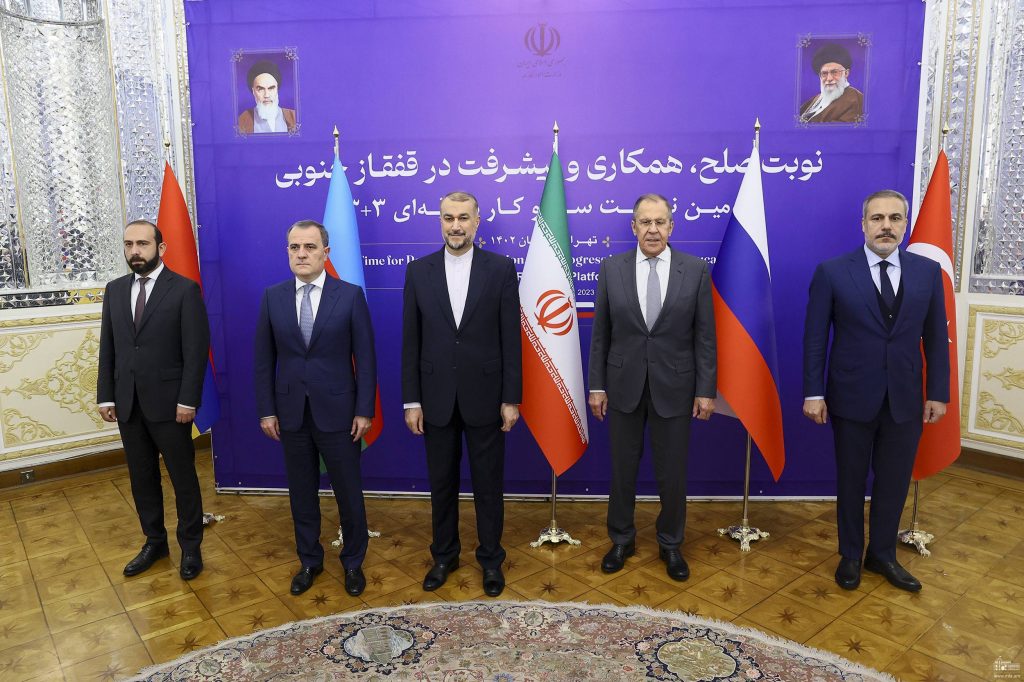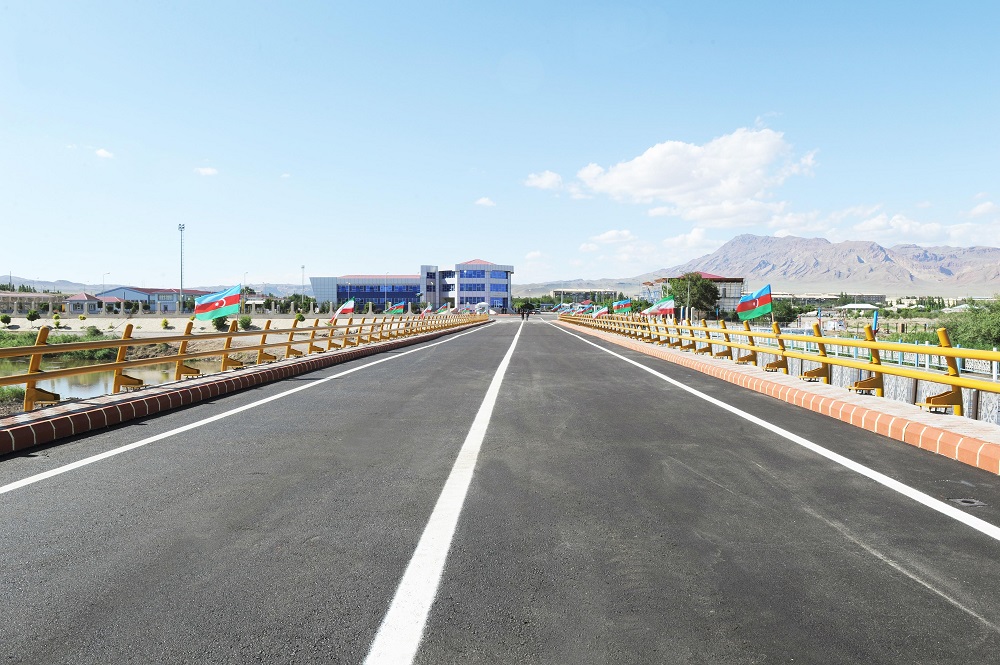Why Georgia does refuse to participate in the 3+3 talks? Opinion from Baku
Georgia’s rejection of the regional format
From the first day of the creation of the “3+3” format for discussing issues of regional cooperation, Georgia has refused to participate therein. Tbilisi explains its refusal by its unwillingness to sit at the negotiating table with Russia. According to Azerbaijani politician Natik Jafarli, the reason for the Georgian side’s refusal to participate in the work of the regional platform is not the most favorable outlook for the country.
- ‘We believed he would come back’. Remains of Azerbaijani soldier discovered after 30 years
- Ukrainian intelligence: Russia moves part of military fleet from Crimea to Abkhazia
- Armenia-Azerbaijan talks. Will Aliyev go to Brussels and what to expect?
The foreign ministers of Armenia, Azerbaijan, Iran, Russia and Turkey met in Tehran. Although the regional cooperation format is called “3+3”, only five countries take part. Georgia has refused to participate in this format from the day of its creation.
What is the format and what is it for?
After the end of the second Karabakh war in late 2020, Turkish President Recep Tayyip Erdogan announced the idea of a “3+3” platform with the participation of the three countries of the South Caucasus (Armenia, Azerbaijan and Georgia) and the three major states of the region (Iran, Russia and Turkey) in order to deepen regional cooperation.
Immediately after the publication of this proposal, Armenia and Georgia refused to participate. Subsequently, official Yerevan joined the work of this platform, the first meeting within the framework of which was held in Moscow in 2021.

Why did Georgia refuse?
“It will be difficult for Georgia to participate in the 3+3 format together with Russia, nevertheless, the country should be represented in some form in major geopolitical projects.” This is how Georgian Deputy Prime Minister and Foreign Minister David Zalkaliani reacted to the idea of creating a regional cooperation format.
“Of course, when we do not see any movement in the direction of de-occupation, it is very difficult to participate in such a format and talk about infrastructure projects.
Nevertheless, I want to give the public such a position for reflection – in these big geopolitical projects and relations we should be represented at least in some form, certainly not at the expense of state interests and some concessions to the occupier,” Zalkaliani said.
“In Tbilisi, there is a zealous attitude towards this format.”
Azerbaijani politician Natik Jafarli, one of the leaders of the opposition Republican Alternative party, does not agree with the Georgian side’s argument about non-participation in the 3+3 format.
According to him, the main object of discussions in this format is the opening of logistical routes:
“Tbilisi believes that after the opening of roads through Iran and Armenia, Georgia’s logistics priority will decrease. This issue is treated with caution in Georgia. Because for many years, due to the Azerbaijani-Armenian conflict and the occupation policy of Armenia, Georgia has turned into a logistical center of routes from Turkey to Azerbaijan and back.
All cargo delivered from Azerbaijan to the countries of Central Asia and the Far East were transported through the territory of Georgia, and during these 30 years the relevant infrastructure has been created in this country. Tens of thousands of jobs have been created around these routes, motels, cafes, service stations, repair shops, and other numerous units of necessary infrastructure are functioning.
Georgia receives nearly $1.5 billion in revenue for the use of the roads and through indirect turnover.
Now Georgia fears that after the opening of new roads, the flow of cargo through its territory will be significantly reduced. It seems to me that this is the reason why Tbilisi is jealous of this format.”
Jafarli emphasizes that Azerbaijan and Turkey can achieve a solution to problematic issues through separate meetings with Georgia:
“Turkey and Azerbaijan should work more seriously with Georgia on these issues and make it clear that some goods will still pass through this country. Georgia should be more persistently invited to participate in the work of this platform. Because Georgia’s non-participation in its work, frankly speaking, creates some questions for international partners.
That is why both Turkey and Azerbaijan at bilateral meetings should bring to the attention of the Georgian side that the opening of new roads in no way means the exclusion of cargo transportation through the territory of Georgia. I think that after such meetings Georgia may turn into a participant of a new regional platform”.
Georgia’s rejection of the regional format



















